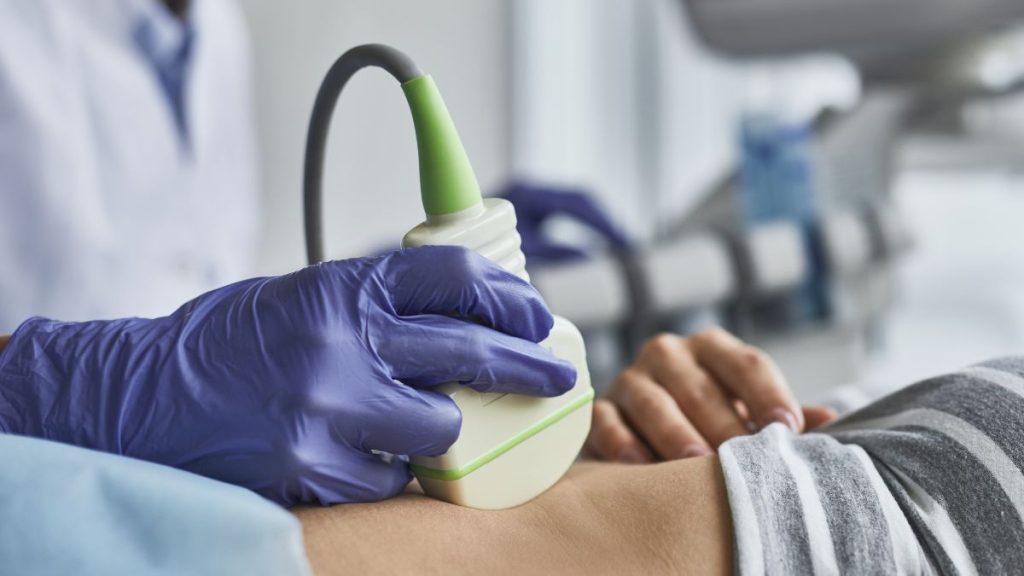Sonographers are healthcare professionals who use ultrasound technology to capture and interpret images of the body’s internal structures. They play a vital role in helping doctors diagnose medical conditions and monitor patient health.
If you’re interested in healthcare, have strong technical abilities, and want to make a difference in people’s lives, becoming a sonographer could be an excellent career choice.
What skills do I need as a sonographer?
- Excellent communication & patient care skills
- Strong attention to detail
- Ability to remain calm under pressure
- Physical stamina for extended periods of standing
- Technical & computer skills
- Understanding of anatomy & medical terminology
- Professional & ethical conduct
- Good hand-eye coordination
What does the job involve?
- Operating ultrasound equipment
- Explaining procedures to patients
- Capturing diagnostic images
- Writing detailed reports
- Collaborating with healthcare professionals
- Ensuring patient comfort and safety
- Maintaining medical equipment
- Participating in ongoing professional development
What industries do sonographers typically work in?
- Healthcare & Social Assistance
What Career Cluster do sonographers belong to?
Sonographers are primarily part of the Guardian Cluster because they help protect people’s health and wellbeing. They also use skills similar to Makers (operating specialised equipment) and Informers (sharing medical knowledge with patients and healthcare teams).
What kind of lifestyle can I expect?
Most sonographers work full-time, averaging about 40 hours per week, though part-time opportunities are available. While most work occurs during regular business hours, some positions may require emergency calls or weekend shifts depending on the workplace.
Sonographers receive competitive salaries, with most earning an above average salary throughout their career. The career outlook is strong, with high demand for qualified professionals, particularly in rural and regional areas.
How to become a sonographer
The path to becoming a sonographer varies between countries, but most require post-secondary education and specialised training. Here’s a general overview of what you’ll need:
Step 1 – Complete your high school education. Focus on subjects like Biology, Chemistry, Physics, and Mathematics, as these will give you a strong foundation for further study.
Step 2 – Choose your education pathway. Depending on your location, you’ll need to complete either:
- A bachelor’s degree in sonography or medical imaging (3-4 years), or
- A bachelor’s degree in a related health field followed by a postgraduate qualification in sonography (4-5 years total)
Step 3 – Get certified or registered. Most countries require sonographers to be certified or registered before they can practice. This usually involves:
- Completing an accredited education program
- Passing qualifying examinations
- Registering with the relevant professional body in your country
Step 4 – Maintain your certification. You’ll need to participate in ongoing professional development throughout your career to keep your skills current and maintain your registration.
Step 5 – Consider specialising. Once you’re established, you might choose to specialise in areas such as:
- Obstetric and gynecological sonography
- Cardiac sonography
- Vascular sonography
- Pediatric sonography
- Breast sonography
Note: Requirements can vary significantly between countries and employers. It’s best to check with professional sonography organisations in your location for specific requirements and pathways.
What can I do right now to work towards this career?
If you’re in high school and interested in becoming a sonographer, here are some steps you can take:
- See if you can find work experience in a health-related setting, such as in a hospital or local clinic. This can help you decide whether or not the career is right for you and can help you start building connections.
- Browse the courses available and make sure you know the requirements for entry. Make sure the course you’re looking at will qualify you for certification or registration as a sonographer.
- Try volunteering in your local community. This is a great way to build some essential skills such as communication, empathy, and independence, as well as looking great on your applications.
Where can I find more information?
- Australasian Sonographers Association
- British Medical Ultrasound Society
- Society of Diagnostic Medical Sonography (US)
- Sonography Canada
Similar careers to sonographer
- Radiographer
- Medical Imaging Technologist
- Medical Doctor
- Registered Nurse
- Dentist
- Surgeon
- Aged Care Worker
- Pathology Collector
Find out more about alternative careers on our Job Spotlights page.


